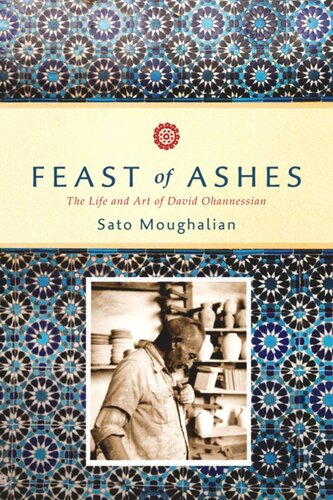

Most ebook files are in PDF format, so you can easily read them using various software such as Foxit Reader or directly on the Google Chrome browser.
Some ebook files are released by publishers in other formats such as .awz, .mobi, .epub, .fb2, etc. You may need to install specific software to read these formats on mobile/PC, such as Calibre.
Please read the tutorial at this link: https://ebookbell.com/faq
We offer FREE conversion to the popular formats you request; however, this may take some time. Therefore, right after payment, please email us, and we will try to provide the service as quickly as possible.
For some exceptional file formats or broken links (if any), please refrain from opening any disputes. Instead, email us first, and we will try to assist within a maximum of 6 hours.
EbookBell Team

4.8
14 reviewsThe compelling life story of Armenian ceramicist David Ohannessian, whose work changed the face of Jerusalem—and a granddaughter's search for his legacy.
Along the cobbled streets and golden walls of Jerusalem, brilliantly glazed tiles catch the light and beckon the eye. These colorful wares—known as Armenian ceramics—are iconic features of the Holy City. Silently, these works of ceramic art—art that also graces homes and museums around the world—represent a riveting story of resilience and survival: In the final years of the Ottoman Empire, as hundreds of thousands of Armenians were forcibly marched to their deaths, one man carried the secrets of this age-old art with him into exile toward the Syrian desert.
Feast of Ashes tells the story of David Ohannessian, the renowned ceramicist who in 1919 founded the art of Armenian pottery in Jerusalem, where his work and that of his followers is now celebrated as a local treasure. Ohannessian's life encompassed some of the most tumultuous upheavals of the modern Middle East. Born in an isolated Anatolian mountain village, he witnessed the rise of violent nationalism in the waning years of the Ottoman Empire, endured arrest and deportation in the Armenian Genocide, founded a new ceramics tradition in Jerusalem under the British Mandate, and spent his final years, uprooted, in Cairo and Beirut.
Ohannessian's life story is revealed by his granddaughter Sato Moughalian, weaving together family narratives with newly unearthed archival findings. Witnessing her personal quest for the man she never met, we come to understand a universal story of migration, survival, and hope.